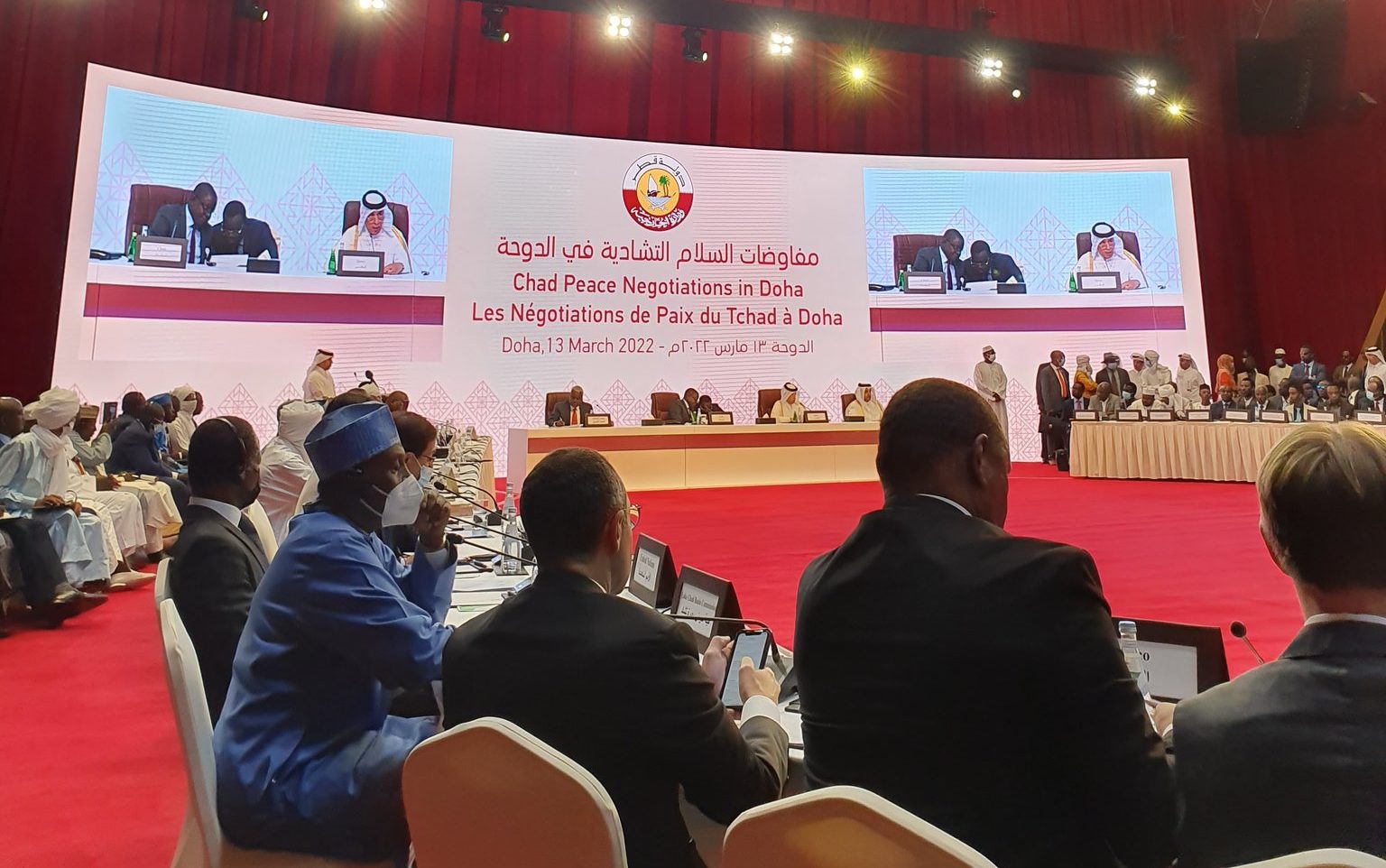Qatar has been hosting the preparatory talks since 13 March and has brought together more than 50 opposition groups in a bid to break a political deadlock in Chad.
Several Chad rebels agreed to continue talks in Doha on Friday after withdrawing from the ongoing peace-building negotiations last week, Reuters reported on Saturday.
The return of the groups to the negotiating table raises hopes in reaching an agreement between all sides ahead of the national dialogue, scheduled to take place on 20 August.
The groups withdrew due to the date for the national dialogue.
The politico-military groups accused the Transitional Military Council (TMC) of President Mahamat Idriss Deby of setting the date without their consultation,
A Chadian official told Al Araby Al Jadeed last week that their return was dependent on “the provision of an appropriate atmosphere”.
Meanwhile, a source privy to the matter told Doha News last week that the talks will continue and the group that suspended their participation is “very small”.
Qatar has been hosting the preparatory talks since 13 March and has brought together more than 50 opposition groups in a bid to break a political deadlock in Chad by paving the way for long-promised, free and transparent elections.
The Gulf state was named an official mediator following an unanimous agreement by parties involved.
According to Al Araby Al Jadeed, Qatar presented the Chadian sides a draft peace agreement on 30 June instead of the previous “peace initiative” that was handed to the parties mid last month.
Qatar reportedly withdrew the previous proposal after rebel groups disagreed with its provisions, which entailed the disarmament of the groups.
The opposition believed that the disarmament should take place along with the formation of a national army and under an elected government.
Under the new proposal, the disarmament is delayed.
President of the “Modern Chadian Generation for Change” (ANUC) movement Rakhis Ali Chahad told the Qatar-based news outlet that the remaining negotiators are waiting on the Qatari mediator to communicate with those who stepped out of the Doha talks.
Chahad added that they are waiting on the suspended delegation to provide its stance on the peace proposal presented at the end of June.
Tensions begin
The current TMC leader had named a 40-member transitional government in May that was set to remain in office until the end of 2022. Deby had also formed the 93-member interim parliament in September, the National Transitional Council (NTC).
The developments came after the current TMC president assumed power following the death of his father, former President Idriss Deby.
The former leader was killed on 20 April 2021 during intense fighting between government and rebels from the Libya-based Front for Change and Concord in Chad (FACT) group.
N’Djamena has since witnessed rising tensions between conflicting sides as Chadians demand a civilian-led transition.
While opposition groups have also called on Deby to step away from elections, the government has insisted on discussing the matter during the national dialogue.
Qatar’s mediation
Qatar’s mediation role in Chad goes back as far as 2009, when it sponsored the signing of the “Doha Accord”, also known as the “Darfur agreement”, between Khartoum and N’Djamena.
The Doha-facilitated agreement, co-sponsored with Libya, was signed amid tensions between Sudan and Chad in 2008, with both countries accusing one another of supporting insurgent groups and rebel attacks inside their territories.
The Gulf state’s latest role also exhibits the resumption of ties between Qatar and Chad after the latter severed diplomatic ties with Doha, amid the 2017 GCC crisis.
Chad had accused Qatar of seeking to destabilise the Central African country through its neighbour, Libya.
In turn, Doha said N’Djamena was taking part in a “political blackmail against the State of Qatar”.







